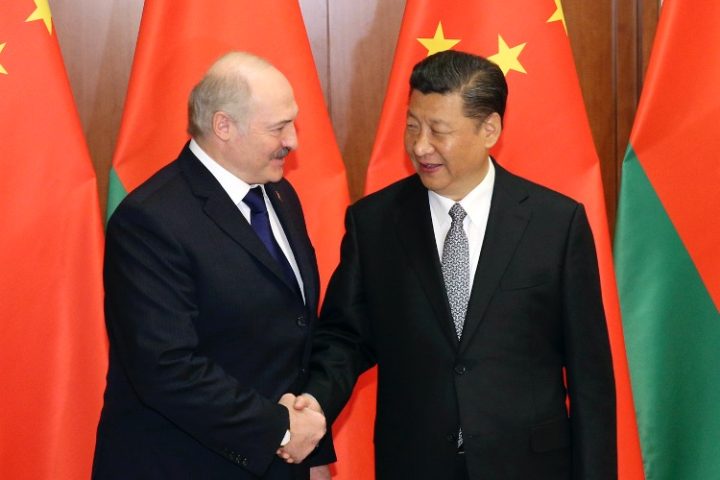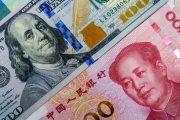
On December 4, Belarussian President Alexander Lukashenko, a close ally of Russian President Vladimir Putin, met Chinese President Xi Jinping in Beijing for the second time this year.
Apart from both sides vowing to boost bilateral relations and cooperation, Xi assured Lukashenko that China firmly backed Belarus in adopting a development strategy suited to its national conditions, while objecting to foreign meddling in Belarus’ internal affairs.
Cui Heng, an assistant research fellow from the Center for Russian Studies of East China Normal University said that Xi’s singling out of external meddling in Belarus’ domestic matters revealed a high degree of political trust between both countries.
“Preventing color revolutions is of great concern for Belarus, which suffered riots in 2020 during a presidential election. And next year, the country is going to have parliamentary elections,” said Cui.
Earlier this year, Lukashenko visited China from February 28 to March 2. Chinese observers have said that Lukashenko’s visits demonstrated the special significance Minsk attaches to relations with Beijing, as well as Belarus’ plans to “look East.” These observers also think that China will further reinforce its ties with Belarus via bilateral cooperation, political trust, and unyielding support for each other on multilateral platforms.
For instance, Zhang Hong, a research fellow at the Institute of Russian, Eastern European, and Central Asian Studies of the Chinese Academy of Social Sciences, admitted that two visits within a year was rare, thus showing Belarus was attaching more diplomatic and economic importance to China.
The Belarussian president was on a “working visit” to the Chinese capital and was received by Xi at the Diaoyutai State Guesthouse for a “working lunch” and three hours of talks, based on reports by Belarussian state media.
Lukashenko, the president of Belarus since 1994, was on the side of Russia when the latter started its military operations in Ukraine in February 2022 by permitting Moscow to use Belarus’ territory.
“China is willing to continue to strengthen strategic cooperation with Belarus, promote practical cooperation and deepen bilateral relations,” Xi reportedly told his guest, as per Chinese state news agency Xinhua.
“The two sides should implement projects like the China-Belarus Industrial Park and promote more achievements in China-Belarus industrial cooperation,” Xinhua cited Xi as saying.
Additionally, Xi stated that more than 150 countries have signed Belt and Road Initiative (BRI) cooperation documents a decade after he introduced the initiative, adding that he announced not long ago eight major steps China would take to support the joint pursuit of high-quality Belt and Road cooperation.
“China welcomes Belarus to continue its active participation and gain more tangible development opportunities from it.”
China was Belarus’ seventh-largest trading partner in 2021 and before the Russo-Ukrainian conflict erupted in 2022, according to UN Comtrade data. Notably, although China was Belarus’ second-largest import partner, the Eastern European country purchased about three-quarters less from China than it did from Russia.
Lukashenko pointed out the potential to grow his country’s commercial ties with China, Belarussian state media said, and praised the “more than 120” two-way visits made by Chinese and Belarussian parties since the leaders last met in March.
Accelerating the pace of cooperation between China and Belarus was “the only issue” Lukashenko hoped to discuss with Xi on this visit to Beijing, the report added.
Xi told Lukashenko that both countries should boost cross-border transport facilitation and boost economic and trade initiatives such as the China-Belarus Industrial Park, as well as people-to-people exchanges, as per reports by Xinhua.
Belarus is undergoing sanctions from the United States, the EU, the U.K., Canada, the Netherlands, and a number of other countries over its stance on the Russia-Ukraine conflict.
Lukashenko told Xi that the world would thank China for its attempts to bring countries into his flagship Belt and Road Initiative, “unlike Western countries that are trying to cut everything into pieces,” Belarussian state media reported.
For his part, Xi offered to bolster coordination and cooperation between China and Belarus in multilateral mechanisms such as the UN and the Shanghai Cooperation Organisation (SCO), the Xinhua report revealed.
“China and Belarus are important forces in the reform and construction of the global governance system,” Xinhua cited Xi as saying.
Apart from wooing Belarus, China has been working on its ties to South Africa, with the latter obtaining a shipment of 450 gasoline generators from China to mitigate the situation of severe power shortages in the country, based on local media reports last Thursday.
South African Electricity Minister Kgosientsho Ramokgopa stated that about 100 more generators were poised to arrive in the near term.
These will be distributed to public service facilities across the country, as per an earlier statement from the government.
“The generators will be used as backup to alleviate the impacts of load-shedding in the delivery of services in clinics, schools and courts, while the government continues to implement the energy action plan to ultimately end load-shedding and create sustainable energy security.”
China’s donation is a part of the Technical Assistance Program, which encapsulates various deals inked between Beijing and Pretoria on the fringes of the BRICS summit in Johannesburg in August this year. Besides a donation of power-generating equipment worth $8.9 million, the program entails a grant of around $26.8 million meant to overhaul South Africa’s power transmission and distribution network.
Some observers have pointed out that there may be an underlying meaning to China helping South Africa solve its energy crisis, despite Ramokgopa declaring in an earlier interview that there were “no strings attached” to the program.
“I don’t think there are strings attached, but there are expectations attached, and it is done with these expectations to oil the wheels of future business…. I think this is more of a political signal. A signal that China is interested in cooperation with South Africa, that they have business interests here and want to expand those interests,” energy analyst Chris Yelland told 702 radio station.
South Africa has been struggling with a power crisis for years, with its state utility Eskom grappling to fully supply electricity owing to regular breakdowns at its coal-fired power stations, causing record power cuts earlier this year.
Meanwhile in Southeast Asia, the Philippine Coast Guard (PCG) sent two armed patrol vessels to monitor more than 100 Chinese boats that it claimed were “swarming” the disputed area around a small reef in the South China Sea.
On December 3, the PCG published photos and videos that it said were ships belonging to the Chinese Maritime Militia, moored close to each other near the small, boomerang-shaped Julian Felipe Reef. This tactic permitted them to set up floating outposts at sea, according to Philippine media.
Manila deems Julian Felipe, as well as many other islets, atolls, and reefs in the area it calls the West Philippine Sea, part of its exclusive economic zone.
PCG regional spokesman Commodore Jay Tarriela said the Chinese vessels were not replying to radio calls from the Philippine patrol ships. He elaborated that the Chinese fleet “is now estimated to have grown to more than 135 vessels dispersed and scattered within Julian Felipe Reef.”
National Security Adviser Eduardo Ano told reporters that the Philippine patrol ships were on a quest to “challenge and document the illegal presence” of the Chinese boats.
Beijing has repeatedly dismissed Manila’s accusations of “illegal” fishing and coral harvesting, maintaining instead that its boats operate in areas under its sovereignty or in international waters.
In a statement last Thursday, Chinese Defense Ministry spokesman Senior Colonel Wu Qian slammed Manila for “illegally” grounding a ship in disputed waters off the Spratly Islands and undertaking actions that have “seriously violated” China’s national rights.
“The US instigated and emboldened the Philippine side to infringe upon China’s sovereignty, which escalated maritime tensions. The Chinese side firmly opposes that,” Wu said.
Washington has pledged to back the Philippines, a regional ally, with U.S. President Joe Biden saying in October that “the United States’ defense commitment to the Philippines is ironclad.”



